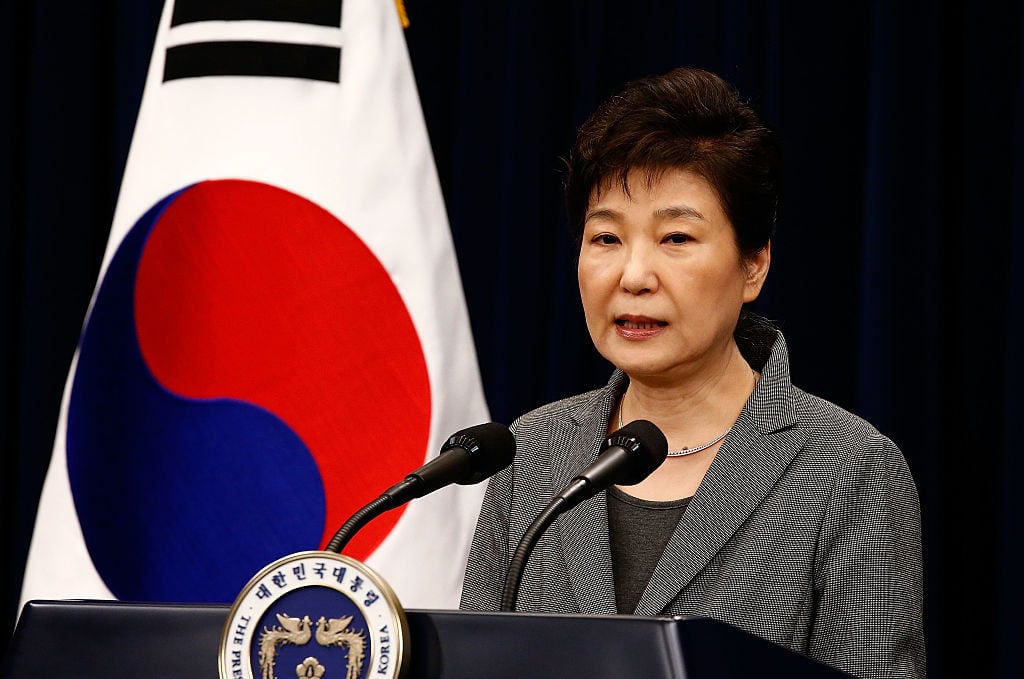
A group of more than 450 South Korean artists have filed a lawsuit against impeached President Park Geun-hye, Park’s former chief of staff Kim Ki-choon, and former culture minister Cho Yoon-sun. It’s the latest in the artist blacklist scandal, which saw the three former government officials charged with abuse of power and coercion last week, for the creation and enforcement of a blacklist.
The lawsuit seeks one million won (about $872) per artist, for breach of basic rights in privacy and freedom of expression and belief, said the group’s lawyers, according to AFP. Numerous official entities in charge of dishing out subsidies from the state to artists were also named in the suit.
The existence of an artist blacklist, created in order to surveil left-wing artists and block funding to those who had been critical of the Park administration or that of her father, former president Park Chung-hee, had been rumor for some time. Investigators began questioning government officials in late December 2016, shortly after a separate scandal led to Park’s impeachment at the beginning of that month.
Just two days after official confirmation of the ringleaders of the list last Tuesday, 461 artists—of a total of nearly 10,000 on the list—are seeking retribution. The Culture Ministry issued an apology for the blacklist, admitting to excluding artists from financial support from the government, and systematically attempting to hush critics of Park.
But, as Reuters points out, South Korea’s legal system does not allow for punitive damage awards. A ruling in favor of the artists, then, would be more of an ideological than financial one.
“The artists were forced to censor themselves to avoid being labelled as ‘leftists’ and treated unfairly in state support, or becoming targets of state surveillance,” said the Lawyers for a Democratic Society in a statement.
It continued, “We would like to show that it is wrong for authorities to try to conquer and tame culture and the arts by abusing its power through the blacklist.”